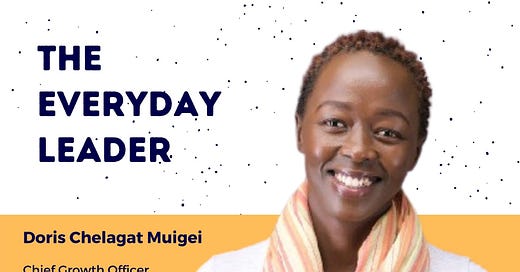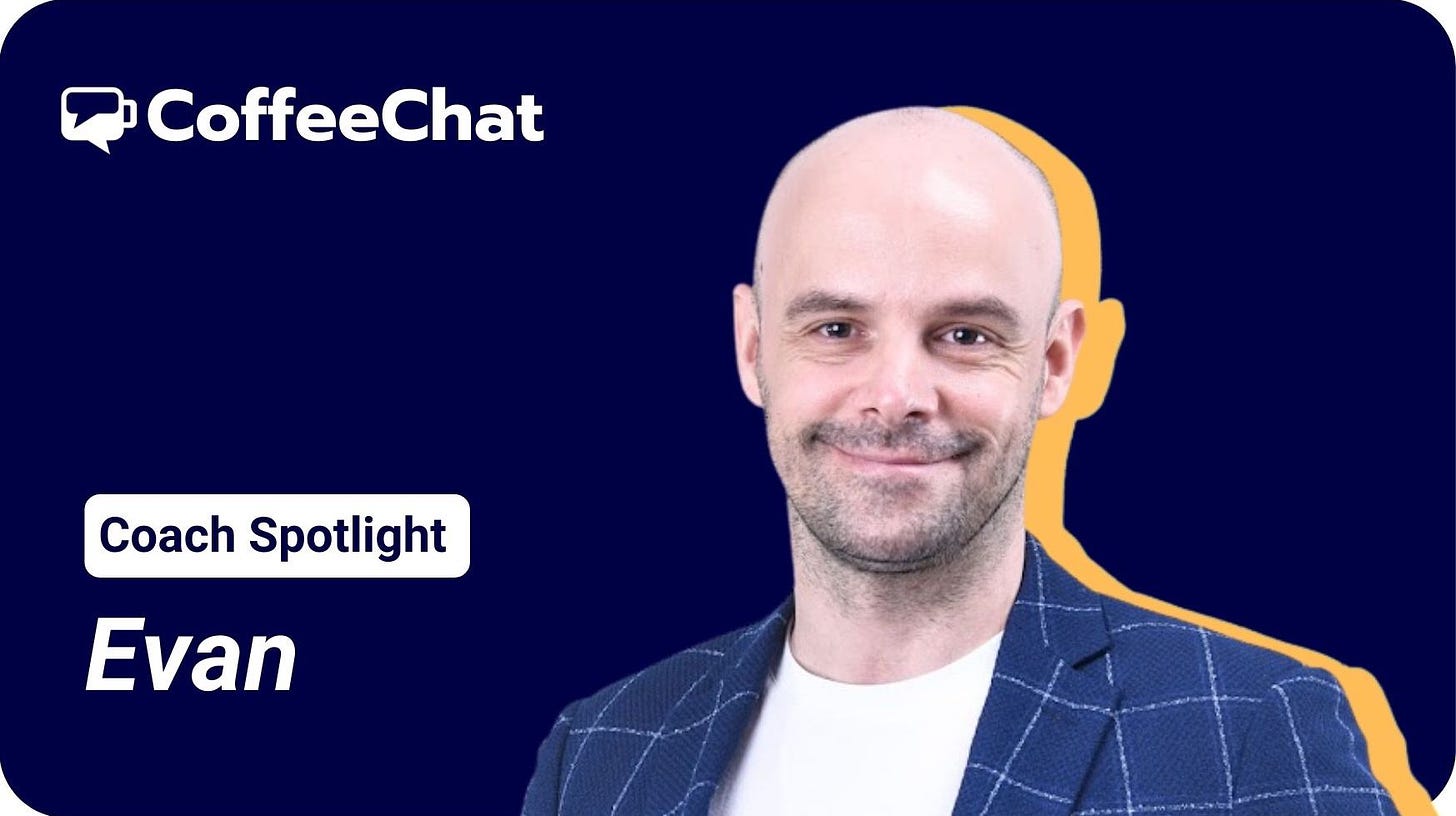Hi everyone, here’s what we have for you this week:
When was the last time you took a strategic pause in your career? Doris Muigei from Kenya-based Yusudi tells us about multiple times when slowing down to self-reflect gave her newfound strength and direction.
Are you already happy with the results you’re getting? We spotlight Evan, a coach from Cyprus, who shares that some managers don’t seek out coaching because they have convinced themselves that they are already achieving their full potential.
The workplace can be a powerful source of inspiration and learning for entrepreneurs. Charles Elioth from Ivory Coast shares how he makes the most of daily opportunities to learn about team collaboration, communication and leadership while working at the African Management Institute.
Read on for more details…
Learning how to slow down, transitioning from HR to general management, and designing your own job description
Here are a few highlights from the conversation with Doris:
You tend to learn the most during the role in which you struggle the most: When Doris joined Shortlist, she initially found it challenging to adapt and thrive in a startup environment, as she had previously worked in an older company with more established processes. It also shaped how she approaches building teams and companies now.
Use strategic pauses throughout your career to realign your career with your purpose: After working for a number of years, Doris decided to pursue a 1-year Master’s in the UK to upskill herself in management. She also used this time to reflect on the direction of her career. She thought about the problems she had come across herself when she was just starting her career and realized that she wanted to help solve those problems for others like herself. This led her to take a role with Shortlist.
Sometimes slowing down can help you move forward: Doris reflected on times when she did not have the awareness that she should take more time to pause. She didn’t realize that her “fuel tank was empty” until it was too late. At one point, her team had to forcibly tell her to take time off. She eventually took their guidance to heart and decided to take a year off from working to really reset.
Transitioning from a specialist track to general management requires planning: Doris came from an HR and Training background but made sure to expose herself to the business side of operations in her roles. In addition to earning a Master’s in management, she also won promotions and positioned herself as a leader at the companies where she worked. In her roles today, she still finds herself using HR experience on a day-to-day basis.
Allow yourself and your team to design their own jobs to drive motivation: Doris picked up on the concept of “job crafting” during her Master’s program, and was able to apply it in the workplace thereafter. Allowing individuals to merge their own individual interests with the goals of the company can be a win-win. Doris has found that it can be helpful for staff to explore and spend time with other department teams and pursue pilot projects to explore how to take on new responsibilities.
The feeling of helping others, 1:1 vs group coaching, and asking the right questions
Evan is an Executive Coach based in Cyprus. During his career, he has managed more than 500 employees across 8 countries and led companies to expand across the Asia Pacific region by successfully crafting the right company culture and leading people from the front. Here’s a preview of our Q&A with Evan:
CoffeeChat: What do you think prevents more professionals from seeking out their own coaching?
Evan: Knowledge about the coaching industry and how a coach can help, procrastination, and ego. Regarding executive coaching, the top reason is that CEOs, leaders, sales and business professionals, and managers don’t hire coaches because they believe they don’t need them. They are happy with the results they are getting, satisfied with the skills they have, and content with their life as it is. Or they are do-it-yourselves – they believe they can develop the skills they need on their own, can get better results by working harder, or can figure out for themselves how to turn around what is broken or not working at all. Or they believe that engaging a coach is a sign of weakness rather than a strength.
Getting started in the entrepreneurship space, using the workplace as a source of learning, and using open communication to navigate uncertainty
Here are a few highlights from the conversation with Charles:
You don’t need a formal education in entrepreneurship to get started: According to Charles, you just need “patience, vision and heart” to get started. He originally graduated with a diploma in logistics, but eventually landed a role to work at Seedstars. He realized that it’s hard to gain solid credibility in the “entrepreneurship” space, so its best to just dive in any way you can find, whether that’s starting your own project or assisting others via incubator programs.
The workplace can be a powerful source of inspiration and learning for entrepreneurs: Even as Charles thinks about pursuing his own entrepreneurial pursuits, he really values working at AMI where there are daily opportunities to learn about team collaboration, communication and leadership.
Be open and honest with your team about the market challenges your company is facing: While at Eneza Education, Charles learned the importance of finding ways to increase communication and feedback loops during difficult times. When your team or company is facing challenges such as finding product-market fit or struggling to fit within local regulations, regular and open communication is crucial to maintaining team morale. Charles and his manager found success in presenting the challenges being faced and brainstorming solutions with the wider team. This is better than the alternative, where the frustration around lack of information can result in rumors that cast uncertainty around the future of the company.





